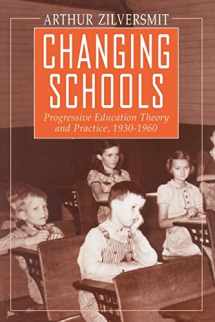
Changing Schools: Progressive Education Theory and Practice, 1930-1960
Book details
Summary
Description
Nearly one hundred years ago America's foremost philosopher of education, John Dewey, set in motion the progressive education movement—an effort to enhance both child and community by establishing schools that would focus on the needs and interests of children, thereby turning out more productive citizens. To what degree did these ideas actually change the day-to-day lives of school children? What can the progressive education movement teach us about the conditions that facilitate and impede the implementation of new ideas about schools?
Through a focus on actual classroom practices in several school systems in the Chicago area, Zilversmit examines the impact of Dewey's ideas at a national and local level. He looks at the course of progressivism from the 1930s, when its influence was at its height but reform was difficult because of the Depression, through the post-World War II period when the baby boom led to rapid school expansion. The new affluence made reform possible, but the Cold War put progressivism on the defensive.
Zilversmit's goal is to illuminate the role of the ideas of the progressives in determining school practices so we can develop a better understanding of the relationship between education ideas and educational practices. This understanding, argues Zilversmit, will better enable us to determine new directions for educational reform, and to determine how reforms can be successfully implemented.


We would LOVE it if you could help us and other readers by reviewing the book
Book review



